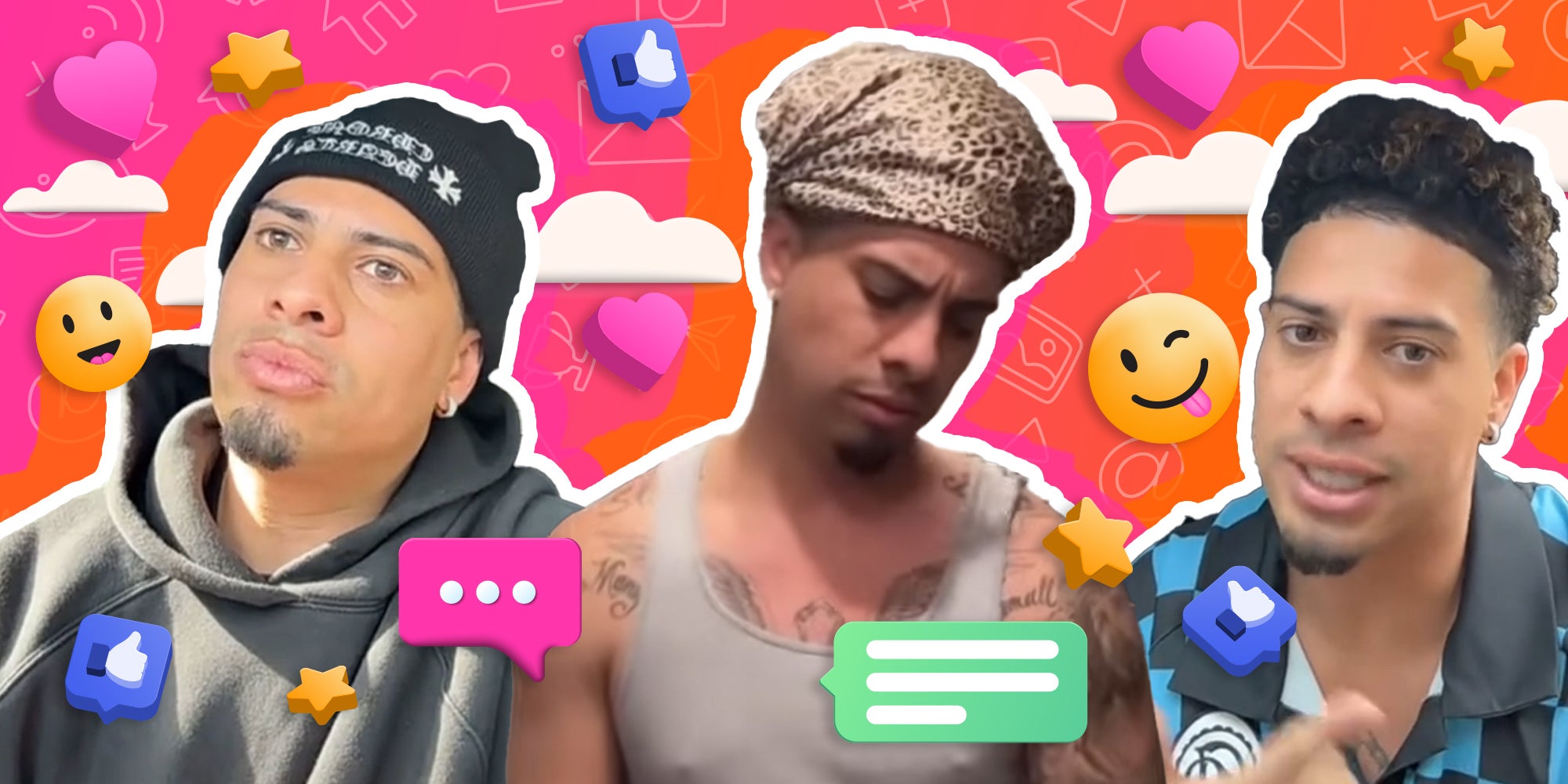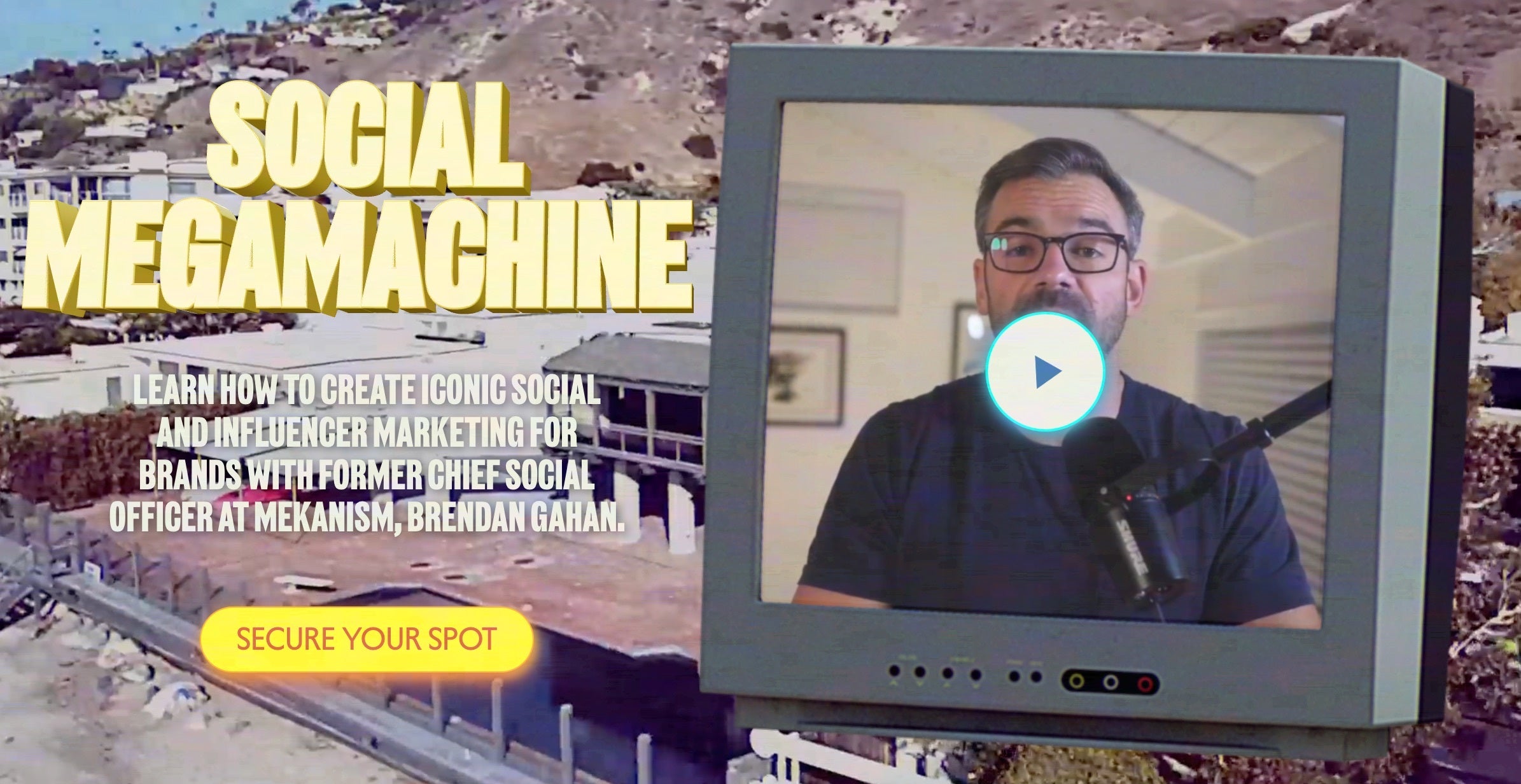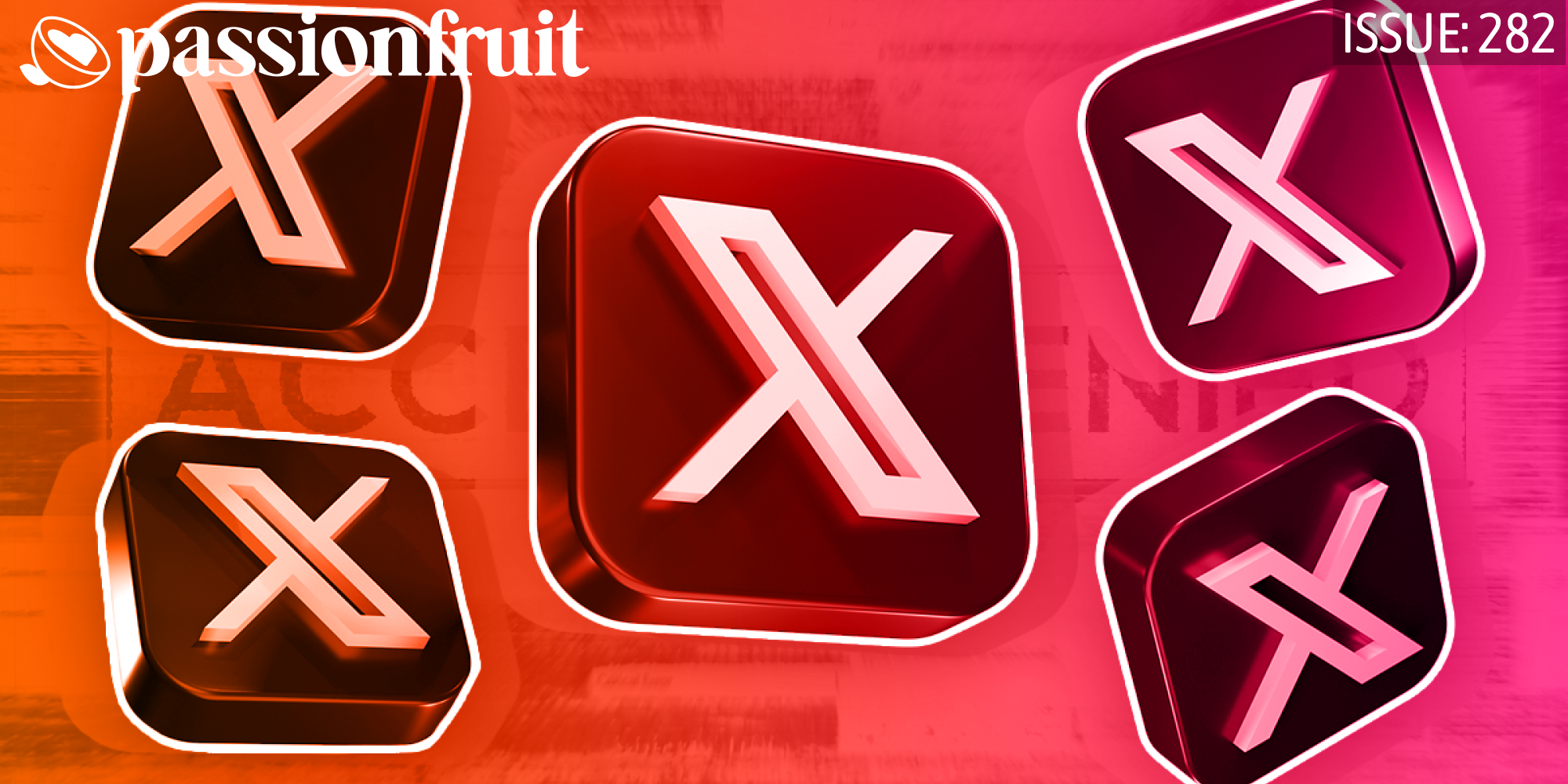CREATOR NEWSLETTER
Issue #209 | February 6, 2024
Back in the day, parents used to send their kids to camp to learn archery or canoeing. Nowadays, children are joining summer camps in droves to pursue their dreams of becoming professional creators. According to a 2023 Morning Consult poll, a whopping 57% of Gen Zers said they’d like to be an influencer if given the chance. Another 2019 Lego survey found that one-third of kids ages 8 to 12 listed “YouTuber” as their top career choice.
It’s no surprise that all these starry-eyed hopes are often exploited, for one, by the platforms and advertisers that use child star power to generate millions in profit. But also by the Instamoms and managers who know how lucrative raising a child star can be.
Just take a look at the rise of the family vlog genre over the past two decades. Some of the first creators to monetize their presence online were mommy bloggers. Since then, the practice of documenting family life has evolved to be a multi-million-dollar industry.
Yet, despite the participation and exploitation of children in the creator space, up until 2023, there were no laws protecting underage content creators in the United States. In 2023, Illinois passed the first-ever state-level law, SB 1782, to regulate the work of child social media stars. And now, one more state-level law might be coming to fruition.
On Jan. 30, the California State Senate passed Senate Bill 764, known as the “Child Content Creator Rights Act.” The bill, which is authored by Democratic Senator Steve Padilla, is intended to “ensure content creators under 18 earn fair financial benefits from the use of their image.”
“Social media has become so widespread in our lives that at the touch of a button, you can be in someone’s life more intimately than ever before,” Senator Padilla told Passionfruit. “As a result, children are having intimate moments of childhood exposed for profit. They deserve fair compensation for their part in their family’s financial success.”
The bill is aimed at parents and guardians who are managing their children’s channels or featuring their children in their content, rather than young teenage entrepreneurs who make money doing their own content. Specifically, the bill requires any adult creator that features minors in 30% or more of their content (over a 30-day period) to set aside a “proportionate percentage of their earnings” into a trust — with the caveat that the earnings from videos that include the children exceed $15,000 annually.
If content with kids generates less than $15,000, the creators don’t have to set aside a fund. Arguably, that’s a bit of a high threshold, but the limit is likely intended to set a high standard for liability and ensure the average Grandpa Joe who goes viral doesn’t get sued.
The children will then receive access to the trust once they reach adulthood, and they could sue the creator who featured them if a proper trust was not formed for them.
The bill passed the Senate Floor 34 to 0, and now moves to the California Assembly for final approval. The Assembly will review the bill sometime this year, and if it gets passed, it will go to California Governor Gavin Newsom to sign into law. If that happens, it will likely go into effect in January 2025. The bill has moved quickly, with bipartisan support and without much public opposition, so it’s got a fair shot to get approved.
That said, the bill would not require social media companies who pay creators to take any responsibility for enforcing the bill or splitting revenue share earnings across multiple parties. Instead, responsibility would fall on a child’s parents or guardians. However, Senator Padilla has said he is open to the idea of platforms eventually having a greater responsibility in enforcing these laws. “It’s an area to be discussed and explored,” he told Bloomberg.
The legislation is similar to the Coogan Laws, a set of state-level financial protections established in the 1930s in the entertainment industry for child actors, musicians, dancers, and other performance artists. Versions of the Coogan Law currently exist in New York, Illinois, Kansas, Louisiana, Nevada, New Mexico, North Carolina, Pennsylvania, and Tennessee.
There are minor differences in state-level requirements, but all require parents and entertainment moguls to deposit a percentage of child performers’ earnings into a trust — 15% in California. The California Coogan Law also makes clear that 100% of children’s earnings belong to the child, not the child’s parent or guardian. Enforcing how the remaining 85% of the salary is actually used is more nebulous, and parents often skirt this by taking a “manager” fee.
Still, as past cases have shown, some level of financial protection is better than nothing. The Coogan Law gets its name from child actor Jackie Coogan. From age nine onwards, Coogan performed in leading roles for dozens of films, reportedly earning more than $4 million before he turned 18. However, at age 21, he realized his family had squandered his wealth on lavish lifestyles, leaving him with less than $2000.
Eventually, Coogan sued his parents and received $126,000. His lawsuit led to the passing of the Coogan Law in California, with some other states following suit.
The current Coogan Laws, however, are only adopted in a handful of states. In addition, they only cover child performers who work under contract — in an employee-employer relationship. In the age of social media, so much profit is generated from content produced in informal settings. Often, content is not monetized through formal contracts but through revenue-sharing programs on social media.
Unfortunately for the kids involved in this kind of content, it’s taken its toll, and many of the children of family vloggers have spoken out to outlets like the Washington Post about the financial abuse they’ve suffered at the hands of their parents (some of whom kept all the money for themselves). But under the law, these vlogging parents are not considered the children’s employers.
Senator Padilla’s bill recent bill aims to skirt amending the complicated employee-employer distinction in the Coogan Laws by proposing a completely separate bill unrelated to formally contracted work. Last month, another California bill was introduced on Jan. 22 by Republican Assemblyman Juan Alanis that aims to add children working in paid social media content to the existing Coogan Law.
But even with the Coogan Law, legislation protecting child entertainers has been limited. Seventeen states in the U.S. do not have any legislation at all protecting child entertainers. States like California and New York have more thorough regulations in place regarding hours worked and school time, while others like Mississippi have none at all. 24 states have some protections but do not require children who work in entertainment to have work permits. The government has largely left the enforcement of child entertainment working conditions to unions like SAG-AFTRA.
Child workers in the U.S. are protected under the Fair Labor Standards Act, passed in 1938. But the law’s scope is quite limited. It mostly focuses on reducing harm from child labor, specifically by restricting working hours for certain ages and taking children out of physically dangerous or taxing jobs that might interfere with their education.
Congress decided to exempt child performers from this federal legislation, saying creative performance is not “coercive,” according to a 2022 Missouri Law Review article (the same state that wants kids to be able to work in coal mines again, mind you). Instead, entertainment work was viewed “as a way for children to grow their talents.” This exemption is called “The Shirley Temple Act” because it was drafted during a time when child actress Shirley Temple was at the height of her career.
But it’s important to remember that labor is labor. Even if it is entertaining, educational, or creative, if someone’s making money off what you make, it’s a job. With all the latest discourse surrounding YouTuber burnout, some of the dangers of the content creation profession are becoming more well-known. Rigorous hours, harassment and stalking, and the constant pressure to contentify your self, identity, and everyday life can be draining and psychologically taxing.
While we know these dangers, there are countless documented benefits to using social media as a tool of free speech, expression, creativity, and socialization. At the end of the day, it’s not only okay for kids to learn about social media, it’s healthy to allow them to participate responsibly. In fact, it’s for the best that we discuss the pros and cons of the career in a more realistic, educational way.
There’s a decision to be made here: Who is responsible for making sure kids aren’t being exploited? Is it their parents, who the latest laws are clearly aimed at… and thus aren’t exactly the people you’d want in charge of making sure the kids aren’t being taken advantage of?
Or is it the platforms, which have massive amounts of content to moderate and don’t have an incentive to crack down on their highest earners? Or is it the federal or local government, run by members of Congress who have openly stated they are pursuing internet regulations like the Kids Online Safety Act for the purposes of targeting LGBTQ+ youth and dismantling access to healthcare information?
In this month’s Big Tech congressional hearing, lawmakers demonstrated they are still trying to wrap their dinosaur brains around whether kids should be allowed on social media; let alone what their labor classification is. It’s just another sign of how far behind the legislature is in adapting laws to apply to the internet.
By and large, lawmakers don’t want to stop kids from pursuing careers in entertainment. They just want to make sure financial abuse doesn’t occur. Padilla, for example, has stressed that the recent bill in the California Senate primarily aims to protect children from financial exploitation by adults, not from the profession itself.
“We want to encourage young entrepreneurs for sure,” he told the Washington Post in December, “but we don’t want to enable exploitation. And I think there probably is a conversation to be had about at some point and at what scale, and in what means and methods, and are they driving that themselves.”
Passing these laws doesn’t mean kids can’t be creative, go on the internet and learn things, or even participate in some forms of work. But it’s important to recognize that when profits start rolling in, parents are often the ones holding the key to their children’s accounts.
There’s at least one thing that we can all agree on. If a kid is making other people money, they at least deserve to own some of it.
– Grace Stanley, Deputy Editor
PERSONALITIES
What’s Going on With Austin McBroom?
After a public divorce, former family vlogger Austin McBroom’s content has become increasingly absurd and concerning.
By Steven Asarch, Passionfruit Contributor

SPONSORED

Join Brendan Gahan, a seasoned expert/former Chief Social Officer of Mekanism, in his transformative 7-part ‘Social Megamachine’ course from the Audacious School of Astonishing Pursuits.
This course distills his vast experience into actionable insights, covering everything from content creation to influencer collaborations. Whether you’re dealing with evolving trends or platform updates, Brendan’s course offers the tools and knowledge to elevate your social media game and advance in your career.
Sign up now, there’s limited spots available, and classes begin at the end of the month.
IN THE BIZ
- People are trying out the Apple Vision Pro goggles and making useful reviews for the rest of us, including letting us know about the horrible dystopian Facetime feature and Adobe Firefly AI integration.
- TikTok’s search bar recommendations continue to cause controversy by promoting inappropriate suggestions underneath creators’ videos.
- Spotify has ended its exclusive contracts with “Call Her Daddy” and “The Joe Rogan Experience,” allowing these podcasts to be available on multiple platforms. This marks a shift in Spotify’s content strategy towards broader distribution and away from platform exclusivity.
- In a bold move, Universal Music Group removed its songs from TikTok following a dispute, impacting artists’ promotional strategies and leading to a mix of chaos and humor on the platform.
CULTURE
Speedrunning: An Explainer
Uncover the meaning of a speedrun, as well as the strategies, history, and culture that propels gamers and streamers to break records.
By Adam Bumas, Passionfruit Contributor
PLATFORMS
Meta Requires AI Watermarks As Election Season Looms
As election season moves closer and closer, Meta is taking more action against potential AI-driven misinformation.
By Charlotte Colombo, Passionfruit Contributor
JOB BOARD
- The Pokémon Company is looking for an associate influencer marketing manager.
- Beauty creator Sydney Morgan is looking for a thumbnail designer.
- Financial creator Invest With Queenie is looking for a video editor.
YOUTUBE MADE ME DO IT
On the latest episode of Passionfruit’s Reactorverse Podcast, creator Chainsaw Reacts discusses his journey from the early days of making content to creating the “Council of Creators” show, aiming to unite creators for a brighter future.
Check it out now on the Passionfruit YouTube channel and subscribe while you’re there so you don’t miss an episode!


Copyright © 2024 Passionfruit, All rights reserved.
You are receiving this email because you signed up to get the latest tips, tricks,
and trends in the creator economy from Passionfruit.
Have an idea for our next big story or want to get featured? Email us at tips@passionfru.it
Don’t want to hear from us anymore?
Click here to unsubscribe
To view in your browser click here





